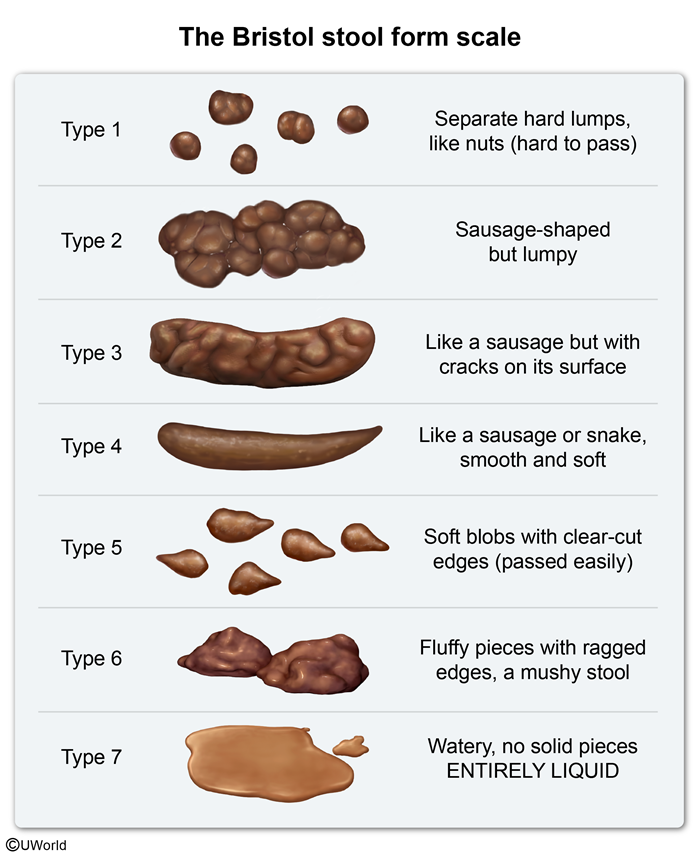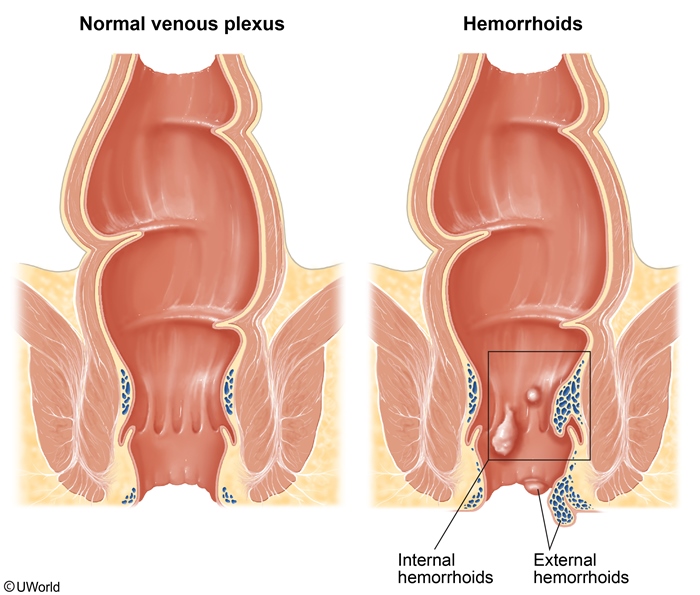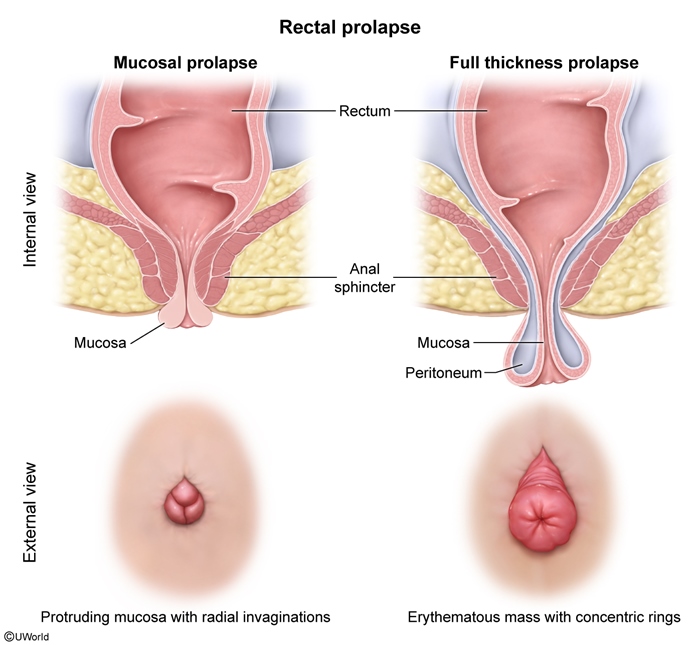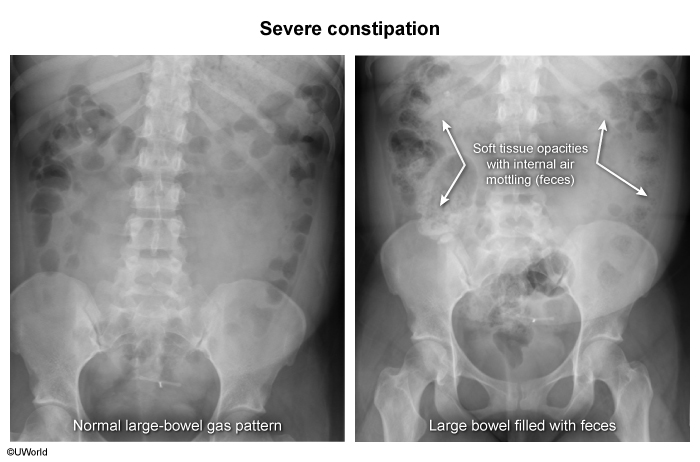Constipation
Article Sections
Introduction
Constipation is characterized by infrequent, difficult, or unsatisfactory bowel movements. It may be acute or chronic and can arise from various conditions. Management is guided by identifying the cause, particularly if there are any alarm features (eg, weight loss, blood in stools, family history of colorectal cancer) to suggest a serious diagnosis (eg, colorectal cancer). Whereas most forms of constipation do not cause serious complications (eg, intestinal perforation), sequelae that further contribute to patient discomfort (eg, hemorrhoids, anal fissures) are relatively common.
Pathophysiology and risk factors
Normal defecation relies on appropriate colonic transit (peristalsis) coupled with effective evacuation of stool at the rectum. Stool reaches the rectum, resulting in distension. In response, the external anal sphincter relaxes, whereas the muscles of the abdomen and rectum contract to evacuate stool. If any of the components of normal defecation are altered, constipation can occur.
Continue Learning with UWorld
Get the full Constipation article plus rich visuals, real-world cases, and in-depth insights from medical experts, all available through the UWorld Medical Library.
Unlock Full AccessFigures



Images
